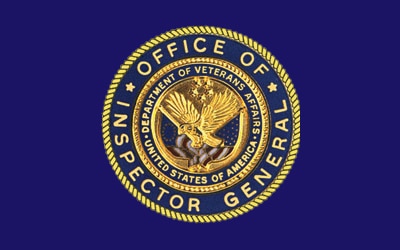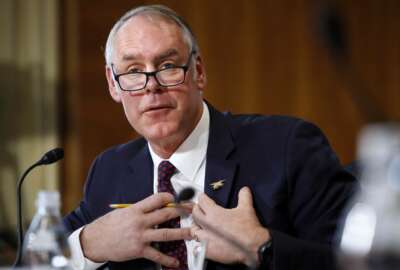
Sequestration could return in 2020 without congressional action
In today's Federal Newscast, while Congress has adjusted spending caps to allow increases in spending, the Congressional Budget Office warns agencies will have to...
To listen to the Federal Newscast on your phone or mobile device, subscribe on PodcastOne or Apple Podcasts. The best listening experience on desktop can be found using Chrome, Firefox or Safari.
- The Congressional Budget Office warned of possible reductions in 2020 and beyond. Under the budget deal recently enacted, Congress increased the spending caps to $701 billion for defense programs and to $720 billion for nondefense programs. But CBO estimated agencies would have to cut $90 billion in 2020 and another $89 billion in 2021, if Congress does not adjust the spending caps beyond 2019. (Congressional Budget Office)
- The 2018 spending bill recently passed by Congress delivers a much-needed boost in funds to maintain military facilities. For the rest of 2018, facility maintenance will still be underfunded – but not by nearly as much as in recent years. The omnibus bill provides 58 percent more funding for building upkeep than the military services received the year before. But according to DoD’s own standards, the $9.9 billion in spending is only about 80 percent of what is needed to properly maintain the department’s $1 trillion dollar real estate portfolio. The biggest boost went to the Air Force, whose facility sustainment budget more than doubled in 2018. (Federal News Radio)
- Veterans in Wisconsin will be the first to benefit from Green Alerts in the U.S. Similar to Amber and Silver alerts, the Green Alert issues a public message for veterans who might be in distress or missing. (WMTV)
- The Pentagon kicked off another bug bounty with participants looking for security vulnerabilities in an unspecified enterprise IT system run by the Defense Manpower Data Center. This is the fifth bug bounty DoD and the military services have hosted over the past two years, in which they found and fixed over 3,000 vulnerabilities. Registration for the latest challenge opened to white hat hackers Sunday. (BusinessWire)
- One Homeland Security Department component wants to get out of the data center business altogether. The Customs and Border Protection directorate set a goal of moving all three of its data centers to one or more commercial cloud providers by September 2019. CBP issued a request for information seeking feedback from vendors about a host of cloud program management, acquisition and operational services. The data center consolidation effort is a major piece to CBP’s broader IT transformation initiative. The agency wants to replace its aging IT infrastructure and enable applications to better utilize the cloud to allow for high availability, flexibility and capacity on demand. Responses to the RFI are due April 19. (FedBizOpps)
- Jeff Pon, the new director of the Office of Personnel Management, said it is time to stop trying to fix the civil service in an ad-hoc manner. In his welcome video message to OPM and federal employees, Pon said civil service reform will focus on changing the way agencies recruit, reward and manage employees. He called for different types of personnel systems for different occupations. (Federal News Radio)
- The Consumer Financial Protection Bureau’s acting director asked Congress to make changes. Mick Mulvaney recommended four statutory changes for the bureau, which he called too powerful and lacking in oversight. Mulvaney sayid Congress should fund the bureau with regular appropriations, give itself the power to approve major rules, have the director serve at the pleasure of the president, and establish an inspector general. The bureau reported responding to 317,000 consumer complaints in fiscal 2017, with debt collection topping the list. (Consumer Financial Protection Bureau)
- Agencies have new guidance from OPM on identifying, addressing, and reporting on the cybersecurity positions they need to fill. The Federal Cybersecurity Workforce Assessment Act requires agencies to identify and code each of its cybersecurity and IT related positions. The next step, is to identify and report on all of those positions each year to OPM. OPM now wants agencies to identify positions that have the greatest skill or staffing shortages, or positions that have the biggest importance. (Chief Human Capital Officers Council)
- The military services are creating inventories for contracted services, but they are not using them to make decisions. The Government Accountability Office said the Defense Department and military services are not using the data collected to make workforce or budget decisions, per a congressional requirement. GAO said military officials complained the data is outdated by the time they receive it. (Government Accountability Office)
Copyright © 2025 Federal News Network. All rights reserved. This website is not intended for users located within the European Economic Area.
Eric White
Eric White is news anchor and Federal Drive producer at Federal News Network.
Follow @FEDERALNEWSCAST
Related Stories





